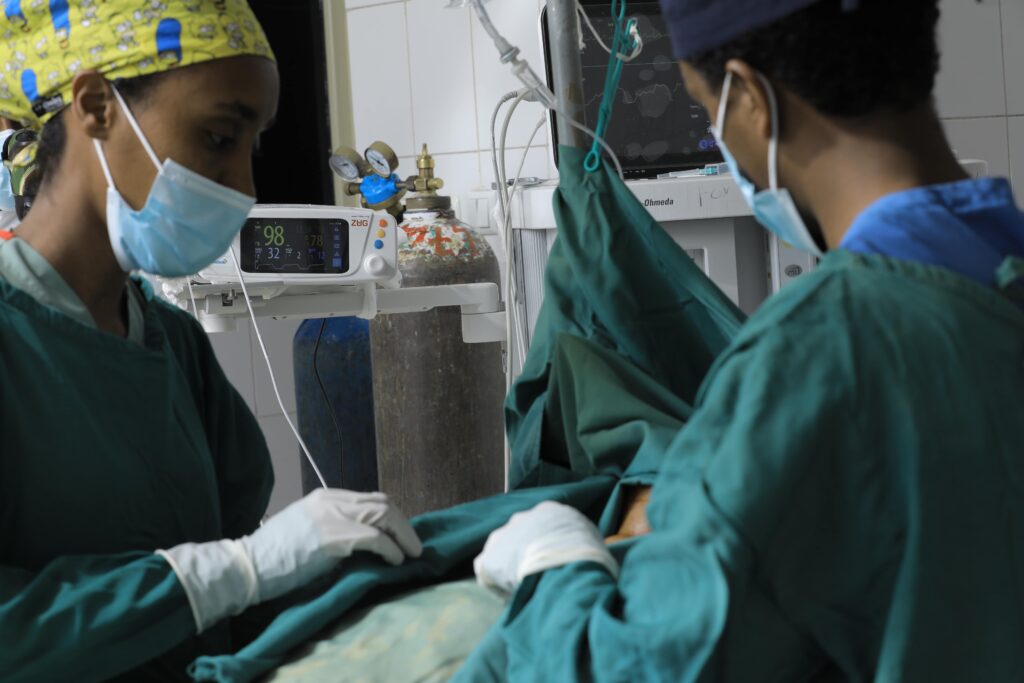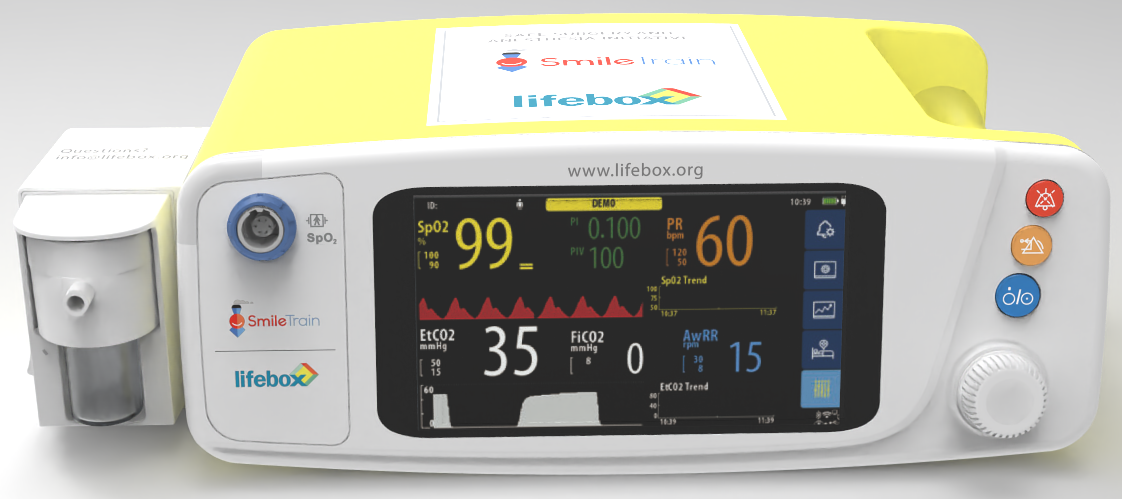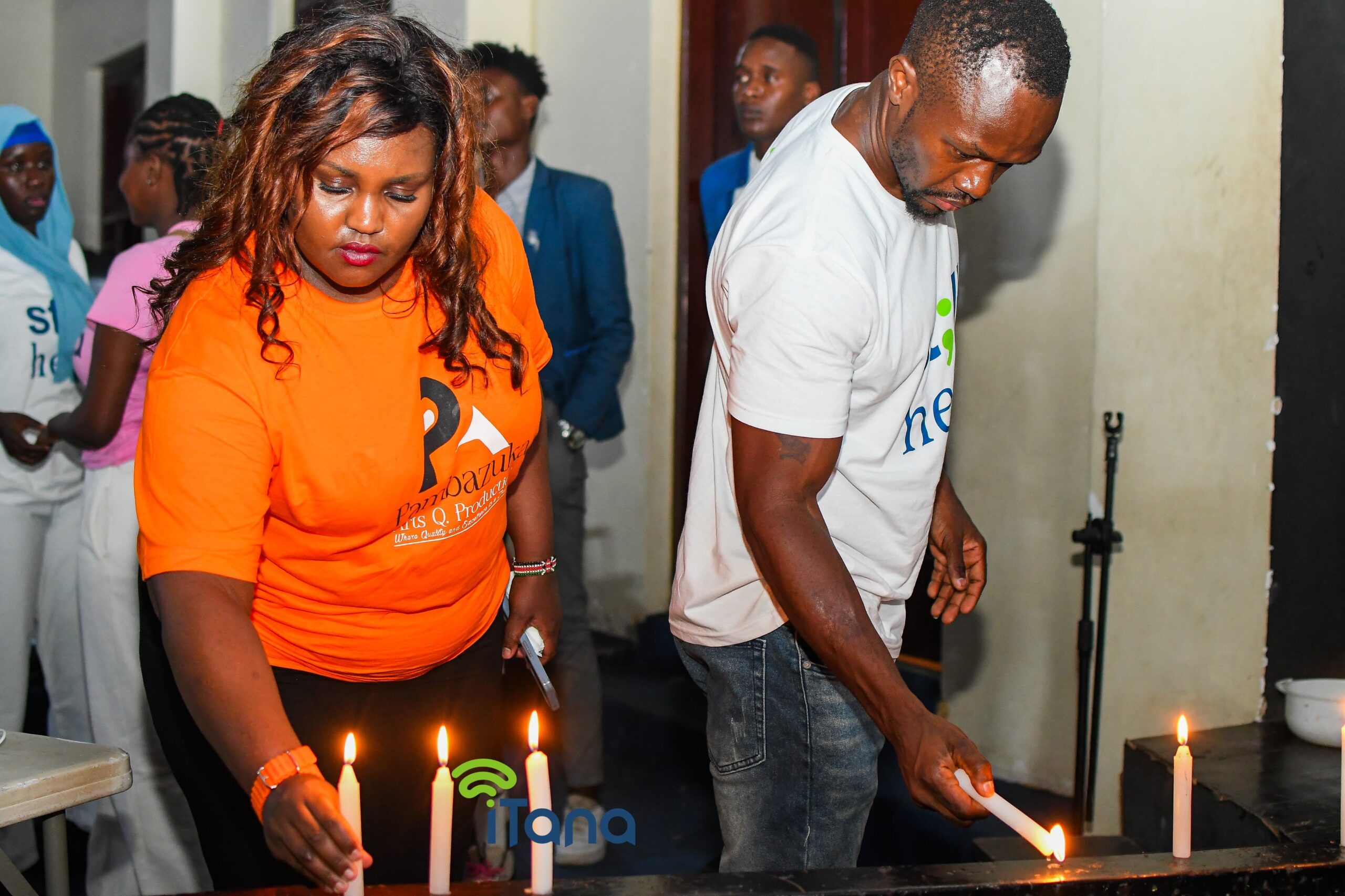The new Smile Train-Lifebox Capnograph device | photo courtesy of Smiletrain and Lifebox.
Smile Train and Lifebox advocate for the inclusion of a capnograph as an essential anesthesia monitoring equipment for safer surgery
SINGAPORE- March 6, 2024 – In a momentous move to improve safety for millions of people undergoing surgery each year, the world’s largest cleft-focused organization, Smile Train, and safer surgery global nonprofit organization, Lifebox, are urging health care systems and equipment standard guidelines, including those set by the World Health Organization (WHO) globally, to include a capnograph as an essential anesthesia monitoring equipment for safer surgery.
A capnograph is the best tool for detecting a leading cause of anesthesia-related complications and deaths in low-resource settings: the misplacement of the breathing tube supplying oxygen to the patient. Without an oxygen supply, the patient will suffer catastrophic harm in a matter of minutes, including brain damage and death. The risk of a misplaced breathing tube is greater in children.
Demonstrating their commitment to closing the global capnography gap, Smile Train this week announced they would be donating additional capnographs valued at over US$300,000 to their partner hospitals around the world. This brings Smile Train’s total commitment to delivering capnography to well over US$600,000, not counting the leadership investment made in bringing the project to fruition.
“Through our partnership with Lifebox, we have seen firsthand the lifesaving impact of capnography in surgical settings,” said Susannah Schaefer, President and CEO of Smile Train.
“We believe inclusion of a capnograph by professional societies and national health authorities as an essential anesthesia monitoring equipment in operating rooms will catalyze its adoption worldwide, ultimately saving countless lives.”

Operating room at Yekatit 12 Medial College Hospital Addis Ababa Ethiopia using The new Smile Train-Lifebox Capnograph device | Photo courtesy of Smiletrain and Lifebox.
This vital tool has been critical in operating rooms in high-income countries for more than three decades. Its introduction in the United States in 1991 led to a dramatic decline in anesthesia-related complications and deaths. Yet, capnography remains largely unavailable across most low-resource-setting operating rooms, with research showing there is often a 100% gap between the need for capnography and its availability in low-income countries.
“Working without capnography has been deeply concerning. It’s like navigating a dark path without a flashlight; you know the dangers are there, but you’re unable to see them until it is potentially too late,” said Dr. Elizabeth Igaga, Director of Programs Safety at Smile Train.
“The absence of such a critical tool not only increases the risk to our patients but places an enormous amount of pressure on healthcare providers to anticipate, identify, and manage complications without delay. Including it on essential operating room equipment guidelines will revolutionize our approach to patient safety, allowing us to detect and respond to potential complications before they become life-threatening.”
However, the absence of capnography in most low-resource settings has been attributed to its high cost and the scarcity of devices adapted to specific local needs.
In response to this critical shortfall, Smile Train and Lifebox launched their Smile Train-Lifebox Capnograph, a high-quality, user-friendly, affordable capnograph with sturdy construction and long battery life suited for use in low-resource settings. Working with the World Federation of Anesthesiologists (WFSA), the Global Capnography Project (GCAP), and other leaders in global anesthesia, the initiative also developed a comprehensive capnography training package for anesthesia providers. This year, 350 Smile Train-Lifebox Capnographs will be distributed in Benin, Ethiopia, the Philippines, and Uganda.
“Capnography shouldn’t be a privilege; it should be standard for surgical patient safety everywhere, and it is needed now,” said Lifebox Global CEO Kris Torgeson. “Inclusion, for example, in operating room checklists as an essential piece of equipment would represent a monumental step in making surgery safer for every patient, regardless of where they live.”
The announcement was made during the 18th World Congress of Anaesthesiologists, taking place in Singapore from 3 – 7 March 2024, marking a critical moment in the global health stakeholders’ efforts to improve patient safety during surgery.
About Smile Train
Smile Train empowers local medical professionals with training, funding, and resources to provide free cleft surgery and comprehensive cleft care to children globally.
About Lifebox
Lifebox is a global nonprofit that saves lives through safer surgery and anesthesia. Through tools, training, and partnerships, Lifebox addresses the critical gaps in surgical systems to make surgery and anesthesia safer worldwide.






